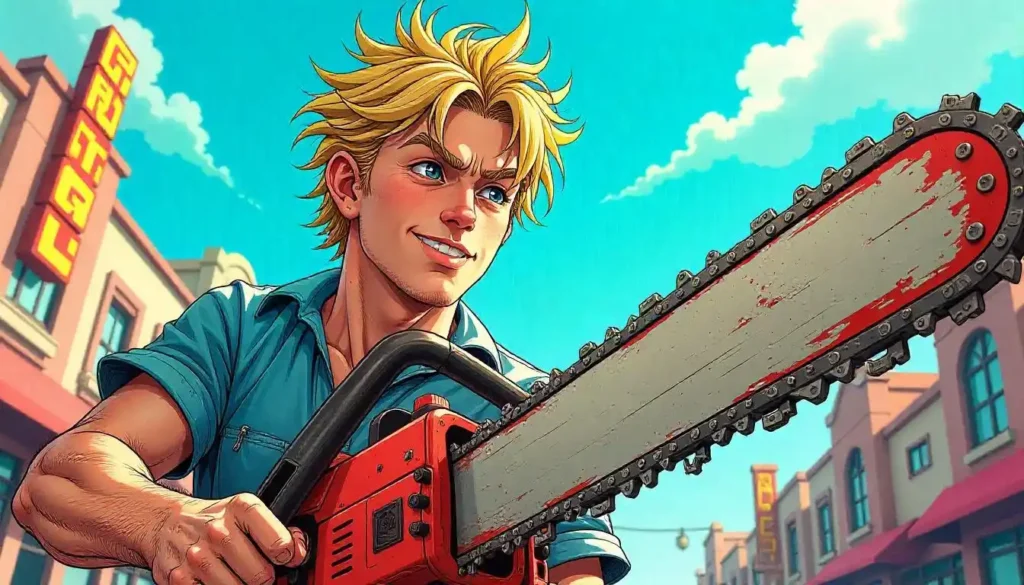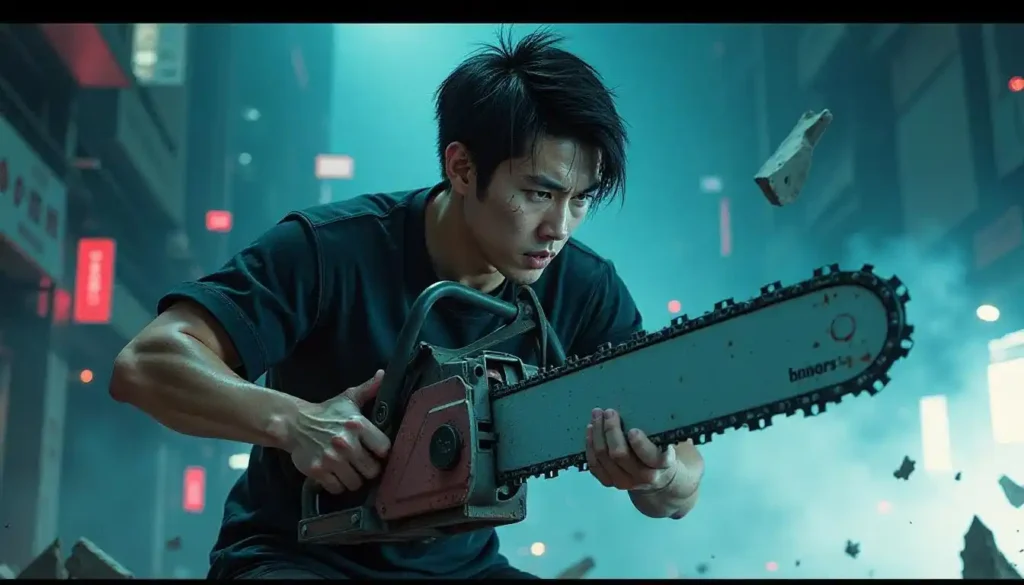
“Chainsaw Man,” directed by Tatsuki Fujimoto, has grabbed viewers with its unusual combination of horror, action, and emotional depth. Since its introduction, the series has gained a significant fan base, thanks in part to its surprise storyline twists and nuanced characters. Chainsaw Man manga chapter 167, dubbed “Super Smooch,” is a watershed event in the series, sparking heated debate among fans.
This chapter not only advances the plot but also raises important considerations regarding consent and relationships in the narrative. As we progress through this chapter, we will examine the important events, character dynamics, thematic aspects, and ramifications for future plot arcs. In addition, we will look at the larger cultural background around these topics and how they relate to real-world concerns.
Chainsaw Man manga chapter 167 Summary
Key plot points:
Chapter 167 begins with Denji dealing with his mental distress following an unsuccessful effort to attend a prostitute recommended by Katana Man. His unhappiness with connection is apparent, and he takes refuge in his wants. Denji’s internal turmoil is clear as he struggles with emotions of loneliness and a need for connection. In an unexpected twist, Yoru, the War Devil, recommends a drastic solution to Denji’s “pecker problem,” bringing them into an alleyway where their old connection resurfaces.
In this personal but contentious meeting, Yoru recalls a past kiss with Denji, driving her to engage him physically. The incident raises serious concerns regarding consent, as Yoru’s approaches catch Denji off guard. This incident not only emphasizes Denji’s weakness, but it also lays the stage for potential emotional fallout, which might have an influence on his future relationships.
Character Analysis
Denji:
This chapter focuses on Denji’s character development. Throughout “Chainsaw Man,” Denji is portrayed as a character driven by basic impulses such as hunger, affection, and acceptance. However, Chapter 167 complicates his desire for connection by placing him in an emotionally charged situation in which he must confront his past traumas. During his encounter with Yoru, his need for connection is countered with moments of confusion and discomfort.
This chapter focuses on Denji’s attempt to combine his demands with the intricacies of human interactions. As he navigates this difficult terrain, readers see a more nuanced side of Denji, reflecting his development throughout the book. The emotional stakes are high for him as he considers what intimacy means to him and how it affects his identity as Chainsaw Man.
Yoru:
Yoru’s objectives are multifaceted and convoluted in Chapter 167. Initially appearing as Denji’s ally, her activities in this chapter blur the lines between devotion and manipulation. Her proposal to Denji is unexpected, raising suspicions about her genuine motives. Is she truly interested in him, or is she using him to satisfy her desires?
Yoru’s persona is complex, representing both might and weakness. Her battle with her love for both Denji and Asa gives complexity to her personality. This contradiction builds tension, propelling the plot ahead and making readers curious about how her relationship with Denji will blossom despite their difficult history.
Chainsaw Man manga chapter 167: Themes Explored
Pain vs. Pleasure
The chapter skillfully mixes elements of agony and pleasure throughout Denji’s narrative. While he craves connection and intimacy, the circumstances of the encounter cause discomfort and perplexity. This paradox shows Denji’s continual effort to reconcile his wants amidst pain.
The contrast between pleasure and emotional agony is very obvious in this chapter. As Denji struggles with his affections for Yoru and Asa, readers are encouraged to consider how these themes emerge in their own lives. The complexities of human emotions are masterfully represented by Fujimoto’s writing, giving it a poignant concept that transcends the manga itself.
Consent and Relationships
Chainsaw Man manga chapter 167 has prompted debate around consent in manga storytelling. The uncertainty of Denji’s response to Yoru’s attempts generates ethical concerns that extend beyond the page. While some fans believe Yoru’s acts are deceptive, others claim that they mirror the difficulties of modern relationships.
This subject encourages readers to have critical debates about consent and agency in fictional narratives. Fujimoto asks readers to think on their personal relationships and society standards by creating a situation that calls into question traditional concepts of romance and intimacy. The conversations that follow this chapter focus on how manga may be used to investigate real-world situations.
Art and Visual Storytelling
The artwork in Chapter 167 stands out for its ability to communicate emotion through visual aspects. Fujimoto’s particular style shows through in this chapter, as he depicts the intricacies of human emotion in intimate situations. The representation of perspiration during the intimate interaction heightens the uneasiness and shame of the situation—elements that are sometimes missed in more traditional romantic presentations.
Furthermore, the use of close-ups during critical conversations highlights the emotional stakes for both individuals. Each panel serves not just to communicate a tale but also to elicit strong emotions from readers. Fujimoto’s creative choices heighten the tension between individuals, making their interactions feel real and authentic while immersing readers completely in their emotional world.
Fan Reactions
The publication of Chapter 167 has prompted conflicting reactions from fans on several platforms. Many people are disappointed with the trajectory of Denji’s possible romance with Asa, believing that it has turned into a disaster owing to Yoru’s activities. Some fans think that this chapter hampers Denji’s development by returning him to settings reminiscent of previous confrontations.
Memes and conversations about the chapter’s contentious character abound on social media sites. Fans have rushed to Twitter and Reddit to discuss Yoru’s proposition and what it means for future episodes. This involvement demonstrates how committed readers are in these characters’ adventures, and it highlights “Chainsaw Man” as a series that continues to spark thought-provoking debates among its audience.
Connections to Previous Chapters
Chapter 167 is the culmination of events from previous chapters that have shaped Denji’s emotional environment. The complexity of his relationships with Asa and Yoru have been hinted at throughout Part 2 of “Chainsaw Man.” Readers who have followed these developments will discover more levels of significance in this chapter, which relates back to past meetings.
Significant elements from previous chapters, such as Asa’s identity difficulties and Yoru’s contradictory feelings, are revisited here, making Chapter 167 feel like a watershed moment rather than a one-off occurrence. This connection enhances the narrative experience for long-time fans while giving new readers insight for why these ties are so important.
Cultural Context
Understanding Japanese cultural ideas about relationships can help explain Chapter 167’s events. In Japan, cultural conventions frequently stress ideals of love and closeness that may conflict with the realities presented in “Chainsaw Man.”

For example, high school students like Asa and Denji frequently endure enormous pressure in their love lives while navigating personal insecurities—elements that can lead to misunderstandings or harmful dynamics in relationships. By interpreting Denji’s interactions via this cultural prism, readers obtain an understanding of how society’s expectations impact character behavior and reader perception.
Future Implications
The consequences of Chapter 167 are expected to echo throughout future plot arcs. With Asa understanding the consequences of Yoru’s actions, tensions between her and Denji are about to rise considerably. The unresolved sentiments between these people provide fertile ground for conflict, which may drive future chapters.
Furthermore, Denji’s unresolved relationship concerns may force him to face more serious psychological obstacles in the future. As he navigates his duty as Chainsaw Man while coping with difficult relationships, readers can expect further exploration of issues like trust, vulnerability, and personal growth—elements that have distinguished “Chainsaw Man” from its start.
Conclusion
In conclusion, Chainsaw Man manga chapter 167 is a watershed event that forces readers to confront complicated topics of consent and emotional damage in relationships. As the story progresses, it will be interesting to observe how these changes affect Denji’s relationships and his journey as Chainsaw Man.
Fujimoto’s ability to build sophisticated storylines full of moral ambiguity transports readers to a world where nothing is black and white but rather painted in shades of grey that mirror real-life complications.
Call for Action
What is your take on Chainsaw Man manga chapter 167? Do you think Yoru acted inappropriately? Are you thrilled or apprehensive about how these changes may affect Denji in the future? Share your thoughts and predictions about how these events may affect Denji and Asa’s relationship! Engage with us in the comments section below; your thoughts may start valuable conversations among fellow fans.
FAQs about Chainsaw Man manga chapter 167
What is the main focus of Chapter 167?
The chapter centers on Denji’s emotional turmoil and his unexpected encounter with Yoru, raising questions about intimacy and consent.
Who are the key characters in this chapter?
The key characters are Denji, Yoru (the War Devil), and Asa, each navigating complex emotional dynamics.
What is the significance of the chapter title “Super Smooch”?
The title refers to the intimate encounter between Denji and Yoru, highlighting themes of desire and emotional conflict.
How does Denji’s character evolve in this chapter?
Denji grapples with his longing for connection while confronting past traumas, showcasing a more vulnerable side.
What themes are explored in Chainsaw Man manga chapter 167?
Key themes include pain vs. pleasure, consent in relationships, and the complexities of intimacy.
How do fans react to this chapter?
Reactions are mixed; some fans express disappointment over Denji’s romantic choices, while others appreciate the exploration of deeper themes.
What artistic elements stand out in this chapter?
Fujimoto’s use of close-ups and expressive visuals effectively conveys emotion, enhancing the narrative tension.
How does this chapter connect to previous ones?
It builds on earlier character developments and emotional arcs, particularly regarding Denji’s relationships with Asa and Yoru.
What cultural context is relevant to this chapter?
Japanese societal norms around relationships may influence character behaviors and the portrayal of intimacy in the narrative.
What can we expect in future chapters following Chainsaw Man manga chapter 167?
Future chapters may delve deeper into Denji’s unresolved feelings and the evolving dynamics between him, Asa, and Yoru.